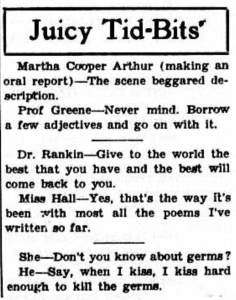The Emptiness of Modern Relationships
February 13, 2020
Modern people are lonely. According to a 2018 Cigna survey of 20,000 people, nearly half the participants felt left out, with Generation Z being the loneliest.
Social isolation is nothing new. Karl Marx argued that people are collective and capitalism isolates people through consumerism. Modern consumerism is dictated by social media. People put time and energy into social media and let it determine their internal worth, resulting in an artificial identity.
Marx’s theory contradicts itself because groups determine people’s internal value through social media. Humans are not collective because happiness is determined by them individually, not groups. Therefore, we must love ourselves before we can have meaningful relationships.
Loving yourself is a necessary condition for having healthy relationships. We choose our friends based on individual similarities. Therefore, friendship is an extension of individuality. But what determines individuality? Our thoughts and internalized stories determine individuality.
In his 1637 book “Discourse on Method,” Rene Descartes concluded that our individual thoughts prove our existence. Yet, identity is never fixed. External forces shape how our self’s perception. Thus, identity is the intersection between both internal and external forces.
The collision between these forces shape people for who they are. How we internalize external information shapes our identity because individual interpretations vary from original sources of information. Therefore, it is impossible to find ourselves in others interpretations of ourselves because we determine our own identity.
External desires themselves cannot lead to happiness. Materialism is a zero sum game because human desires are limitless. Consequently, it is impossible to find happiness in external things. This philosophy known as“hedonism” ignores suffering in the pursuit of pleasure. According to Plato, hedonism is impractical because people can bring about pain pursuing pleasure. Therefore, happiness is the product of internal merit.
Habit determines internal virtue. Repeating good deeds that result in pleasant outcomes leads to happiness. Practice makes perfect. Thus, excellence and virtue require practice. Making happiness the product of habit.
As Aristotle says, “We are what we repeatedly do. Excellence, then, is not an act, but a habit.”













